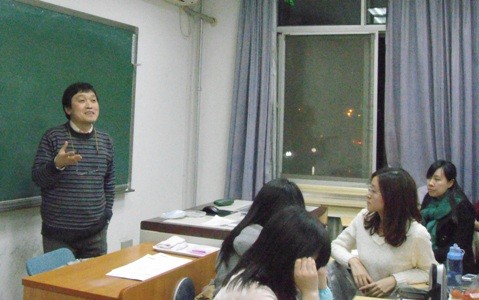
Almost 200 years have passed since English writer Mary Shelley penned Frankenstein, the world's first science fiction novel in 1818. However, it wasn't until 1904 that China embraced the genre with The Moon Colony written by Xu Nianci. In the following century since then, China has undergone dramatic historic periods characterized by war, struggle, revolution and development - all fertile breeding grounds of inspiration for science fiction writers. The genre in China has likewise ridden highs and lows, experiencing a revival on the back of recent success of the extraterrestrial Three Body trilogy written by Liu Cixin. Before this, science fiction also worked its way into the classroom in 2003, being taught at a Beijing university as a major.
A genre of its own
Liu's trilogy not only won the highest award for Chinese science fiction but also the Dang Dai Magazine Award, one of the most prized literary accolades for mainstream Chinese fiction. Three Body sold 400,000 copies, making it China's most popular science fiction novel since the 1961 publication of Ye Yonglie's Xiao Lingtong's Odyssey to Future.
On the surface, Chinese science fiction in the 21st century appears to have hit its peak. However, some people argue the current situation is still far from satisfactory. Li Qi, a 24-year-old college student who calls herself "sci-fi fundamentalist," describes feeling "hurt" every time she discovers science fiction novels shelved with fantasies.
"I've been reading science fiction since I was seven, and there is a huge difference between science fiction and fairy tales," said Li. "Although both genres are based on creative imagination, I consider science fiction more serious and deserving of more attention and respect."
Wu Yan, a science fiction writer and associate professor at Beijing Normal University, is the only master tutor of science fiction in China. He believes categorizing science fiction with fantasy is merely a marketing strategy to help boost sales. "Fantasy is currently the most popular form of literature in China. Putting science fiction novels alongside fantasy ones helps promote the sales of science fiction," said Wu. "In my view, as long as this strategy lifts the profile of science fiction in China, it's fine."
The biggest problem facing Chinese science fiction, Wu argues, is the lack of talented writers tackling the genre. "Liu Cixin, Han Song and Qian Lifang are experienced, creative writers who still have a lot to offer. But we also need young, talented writers to step up," he said.
Since 2003, 16 students have graduated from Wu's science fiction course, with four going on to establish careers as professional writers. Arguably, his most notable alumnus is Yang Peng, China's first Disney author authorized to write Mickey Mouse's Adventures in China.

Copyright ©1999-2011 Chinanews.com. All rights reserved.
Reproduction in whole or in part without permission is prohibited.